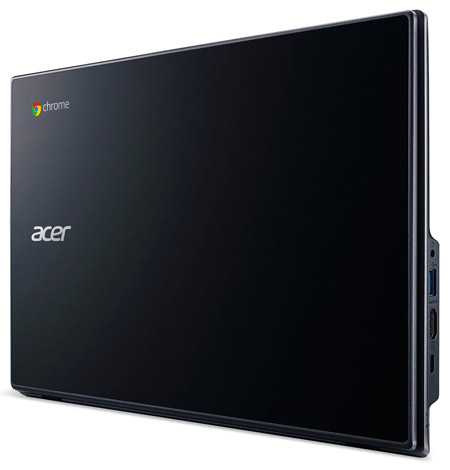Every time the “PC is dead” topic comes up, an old Monty Python movie comes to mind, and I’ll bet you can guess which one. PCs are on almost every desk, and the installed base is measured not in the hundreds, thousands, or even tens of thousands — it is measured in the hundred millions.
Brian Krzanich, Intel’s latest CEO, last week announced a massive layoff tied to the company’s missing its quarterly numbers, and once again the alarm sounded. Was the PC is dead, or was Intel’s miss just another new-CEO mistake? (There have been a lot of those of late.)
It is becoming really clear to me that there definitely needs to be a class for new CEOs that covers the fundamentals — at least — but what I’m finding incredibly annoying is that the industry responsible for analytics and artificial intelligence doesn’t seem to be very good at doing causal analysis.
I don’t think the PC is dead today any more than I did six months ago, but I am becoming concerned that a lot of folks who depend on the PC appear to be doing a damn good job trying to kill it, because they simply don’t want do what needs to be done.
By the way, as a side note, I’m suddenly seeing a ton of interest in AMD’s coming Zen platform, making Krzanich AMD’s favorite Intel CEO ever.
I’ll go further into that and then conclude with my product of the week: an interesting new Chromebook from Acer that aggressively uses Gorilla Glass to create something unique and interesting.
The Revolving Door of Causes
Over the last few years, I’ve watched people point to Windows Vista, the iPad and Windows 8 as the cause of PC sales declines. Windows Vista was replaced by Windows 7, and it didn’t really fix the problem. Tablet sales are declining faster than PC sales are declining, and Windows 8 has been replaced by Windows 10, and that didn’t fix the problem. Windows 7 and Windows 10 both were well received. So let me suggest that all of these supposed causes are BS.
Think about it. If you are sick and your doctor says the cause is gluten and you cut out gluten but are still sick, and then your doctor says it is sugar so you cut out sugar and are still sick, and then your doctor says it is processed meat and you quit eating that but are still sick — then maybe it is time for a new doctor who can do more than make random guesses as to what the problem is.
So why is the PC in decline?
Why PC Sales Are in Decline
When the Windows/DOS PC first came to market, it cost a lot and people tended to keep it for around eight years. Then there was a huge push to massively reduce its cost, coupled with a critical need for more performance, and for about a decade we had both rapid market expansion and rapid churn — even though it was incredibly painful to move from an old PC to a new PC.
The only company that understood that the pain was stupid was Apple. Windows users were trained to accept that getting a new PC was a pain in the butt rather than fun, and they treated it like something to be avoided. Even in companies like Intel, which builds this stuff, it wasn’t at all for uncommon employees to turn down a new PC, because they simply didn’t have the time to deal with the pain of the migration. That was drilled in over and over again.
Once Windows XP came out, people were sick of getting new PCs, and the developed market started to reach saturation. That meant not only that there were there fewer people who didn’t have PCs, but also that there was an increasing number of folks who didn’t want to replace the ones they had.
Oh, and even though migrations got a lot easier after Windows Vista, a huge part of the market was stuck on Windows XP.
So I think the heart of the problem is that for a decade, the PC industry taught people to avoid new PCs like the plague, and it did a great job saturating the market, which is why PCs are stalled.
What’s my proof point? If you look at the latest Gartner and IDC numbers, you’ll see that the stats for Apple and Dell are nearly identical and flat, which suggests a stable-state replacement market. Given that XP stabilized in the market around 2005 and the numbers reflect 2015, we are now operating in a saturated market in which the replacement cycle is averaging eight to 10 years.
I should point out that this is pretty close to where the TV market was at the beginning of the last decade — a saturated market with an eight-to-10 year replacement cycle.
How to Fix It
The way the TV folks increased market demand was first by convincing us we all needed flat- screen HD TVs. Then they convinced us we needed 3D TVs, and now they are selling us on 4K TVs, driving a replacement cycle that appears to be closer to four years than 10. By the way, 8K TVs are coming, so they aren’t done yet.
The TV industry isn’t just bringing out new technology — it is doing a decent job convincing us we want it. It did kind of burn the market with 3D, which has slowed the 4K adoption cycle significantly — but it seems to have learned its lesson, and we do have an increasing pool of 4K content.
The industry makes that happen with a status-focused argument. Much like it was when color broke out, tied to Walt Disney’s Wonderful World of Color, it became a critical status symbol to have a color set. Kids actually were the big driver back then, because everyone went to a kid’s house that had color, and the other parents tended to look like deadbeats.
Cars still move largely on status. They are good for a decade — but people buy new ones, maintaining churn, because a new car signifies success. The auto market almost died in the 70s, when the industry seemed to forget that.
Now one of the product lines that is selling very well is the Microsoft Surface, and the fact that Apple had to respond with a honking big iPad Pro showcases how successful the Surface has been. The Surface products look good, are very well marketed, and convey status (particularly the Surface Book).
Now, think back. Have you seen an ad for a TV that made you want to buy the TV? How about a car or a smartphone? OK, now when was the last time you saw an ad for a PC? If you did, it was likely a Surface, and there is a pretty good chance you wanted it. How about any other PCs?
So, TV companies advertise TVs and move them. Car companies advertise cars and move them. Phone companies advertise smartphones and move them. PC companies mostly don’t advertise their PCs aggressively — and certainly don’t connect them to status — and the conclusion is that PCs are dead?
How about 2-in-1s, you ask? The issue is they seem to provide a feature that folks don’t want to use. The vast majority of buyers use them just as notebooks, not tablets, much like the vast majority of iPad users use iPads as tablets and not notebooks. For 2-in-1s to work, the industry needs to address the fact that folks don’t use them as tablets (or at least you don’t see folks, not even the executives of the firms that make them, using them as tablets).
Wrapping Up
There is an old (and really cruel, come to think if it) joke about researchers and a frog. They start with the frog having four legs and they cut off one at a time finding the frog drops a foot of jumping range for every leg removed until the last. When the last leg is removed and frog doesn’t jump, they conclude the frog has gone deaf. That joke used to be a lot funnier.
The tech industry is much like those researchers. They can see what causes products to move all around them. They can see, even in their own companies, why people aren’t getting new PCs. They have seen other industries fix problems like this. They just ignore all of that and come to a completely orthogonal conclusion that folks don’t want PCs anymore, even as they look around and see PCs on every desk around them.
Acer clearly missed the whole “PC is dead” thing, and it appeard to get that you actually need to not only create products people can get excited about but also market them. Its latest launch is worth watching.
A number of the products caught my eye: the tablet for older folks who really don’t like learning technology (we all likely have folks like this in our families); the MacBook Air-like product for half the price; and the kick-ass VR-ready gaming notebook and small tower, which had me drooling slightly.
However, I found the Chromebook with the Gorilla Glass cover most interesting — though I kind of wondered why Acer didn’t offer this in a regular notebook.

Chromebooks haven’t been selling outside of education, but — as I mentioned above — status seems to work across industries, and the idea of having your own protected image on the cover of a notebook likely has merit.
Chromebooks are a lot like netbooks in that they imply a lack of personal wealth, but if you can turn the product into something people will be proud of, by attaching a picture or a logo to the cover that won’t degrade with time, there is a chance that you could turn a negative into a positive. Granted, the concept actually might work better on a notebook.
Acer stood up in the face of this “PC is dead” nonsense and launched a bunch of compelling PCs, and it even talked about working on what comes next. I’d give the title to Acer itself, if I could — but instead I’ve chosen its interesting Gorilla Glass Chromebook as my product of the week.

























































I dropped 5k on a new PC system early last year. Why? Because the PC still does what I want it to do, and nothing else does; because I like two big beautiful monitors to work with and game on; because VR is, hopefully, right around the corner, and console systems that don’t do everything I want them to do, in addition to gaming, don’t interest me.
I think the PC form factor is far from dead. And smart companies like Acer understand that.
To summarize: PC evolution left us feeling jaded, cynical, and used. But Chromebooks make us happy.
I appreciated this point of view and I agree whole heartedly so much I created an account just to say so.
I was reading in another tech blog about Intels new CEO and I AM prone to thinking this guy doesn’t know what he is doing really. The PC will never fully die. Too many of us want the ability to swap parts in and out and new tech is coming out all the time.
example of why other tech people I know are still buying are for things like Oculus Rift. its not a new PC but check newegg and similar they sell lots of parts why they are not driving this shows that they really do have their heads in the clouds along with a huge disconnect between the user base and CEO level management.